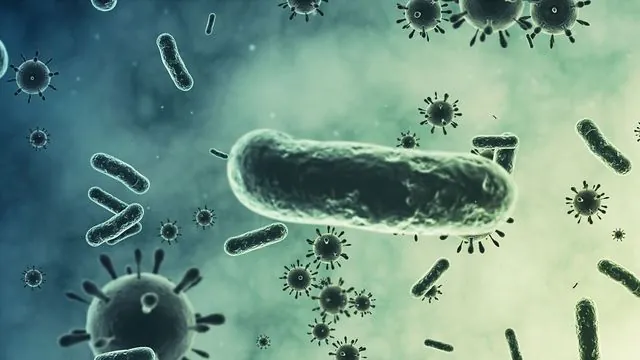
Groundbreaking Study Reveals How Diverse Phages Thrive on Gut Bacteria
2024-12-13
Author: Siti
Introduction
A revolutionary new study published in the journal Science has unveiled significant insights into the complex interactions between phages—viruses that specifically infect bacteria—and their bacterial hosts. Researchers from NYU Grossman School of Medicine, the University of Oxford, and Yale University have discovered that multiple species of phages can coexist on a single strain of E. coli, a common bacterium found in the human gut that includes harmful variants known to contribute to infections.
Phage Therapy and Antibiotic Resistance
This study, published online on December 12, has important implications for the future of treatments targeting antibiotic-resistant infections. As antibiotic resistance continues to pose a global health threat, phage therapy is emerging as a promising alternative. However, scientists have struggled to understand how different phage species can persist within the same bacterial population, which has hindered the advancement of effective phage-based treatments.
Coexistence of Phage Species
The research team observed that individual phage species display a remarkable ability to coexist by targeting distinct niches within a genetically uniform population of E. coli. They identified two phage species, referred to as N and S, which thrived in different sub-populations of bacterial cells. Phage N was found to preferentially infect fast-growing cells, while phage S adapted to slower-growing ones. This specialization allows multiple phages to successfully cohabitate, despite competition for the same resource—the bacterial cells.
Implications for Phage Therapy
The implications of these findings go beyond basic biology; they could pave the way for the creation of next-generation phage therapies that operate more efficiently than traditional antibiotics. 'Understanding how diverse phages can survive over time can inform the design of phage cocktails that target different lifecycle stages of the bacteria, potentially eliminating resistance development,' explained Nora Pyenson, the lead author of the study.
Challenges in Clinical Applications
Despite the promise of phage therapy, the journey toward standard clinical applications remains fraught with challenges. Past attempts have often failed to eradicate bacterial infections completely, due to either the resilience of remaining bacteria or their rapid evolution of resistance—similar to the issues faced with antibiotics.
Current Clinical Trials
Current clinical trials are exploring phage treatments as viable alternatives. One noteworthy example involves a research initiative led by Yale's Paul Turner, which investigates the effectiveness of phages against Pseudomonas aeruginosa, a notorious pathogen that can cause severe lung issues in cystic fibrosis patients. Researchers are also keen on understanding how phages contribute to the gut microbiome, influencing both health and disease prevention.
Phage Ecology and Health
Phage ecology is a burgeoning field that delves into the diverse relationships between viral species and their bacterial hosts. The newfound understanding from this study challenges the historical perception that viral diversity is directly limited by the genetic diversity of bacterial species. Instead, the researchers demonstrate that a singular bacterial strain can sustain a vibrant community of competing phage species, akin to how diverse bacteria exist within the human microbiome.
Conclusion
The balance of these microbial communities reflects on human health; a diverse microbiome enhances the body’s ability to fend off invading pathogens. Likewise, the intricate web of phages in the gut plays a crucial role in regulating overall health. Imbalances in these viral populations are suspected to contribute to serious conditions such as sepsis.
'This work signifies a pivotal shift in our understanding of phage ecology,' highlighted Dr. Jonas Schluter, one of the co-authors. 'Thanks to the extensive research carried out by Dr. Pyenson through challenges like the pandemic and across multiple laboratories, we are beginning to comprehend how the evolution of phages within viral communities can affect health outcomes.'
As we stand on the brink of revolutionizing treatments for stubborn infections, this research illuminates the path forward, suggesting that a deeper understanding of virus-bacteria interactions could be the key to overcoming one of modern medicine's most pressing challenges.




 Brasil (PT)
Brasil (PT)
 Canada (EN)
Canada (EN)
 Chile (ES)
Chile (ES)
 España (ES)
España (ES)
 France (FR)
France (FR)
 Hong Kong (EN)
Hong Kong (EN)
 Italia (IT)
Italia (IT)
 日本 (JA)
日本 (JA)
 Magyarország (HU)
Magyarország (HU)
 Norge (NO)
Norge (NO)
 Polska (PL)
Polska (PL)
 Schweiz (DE)
Schweiz (DE)
 Singapore (EN)
Singapore (EN)
 Sverige (SV)
Sverige (SV)
 Suomi (FI)
Suomi (FI)
 Türkiye (TR)
Türkiye (TR)